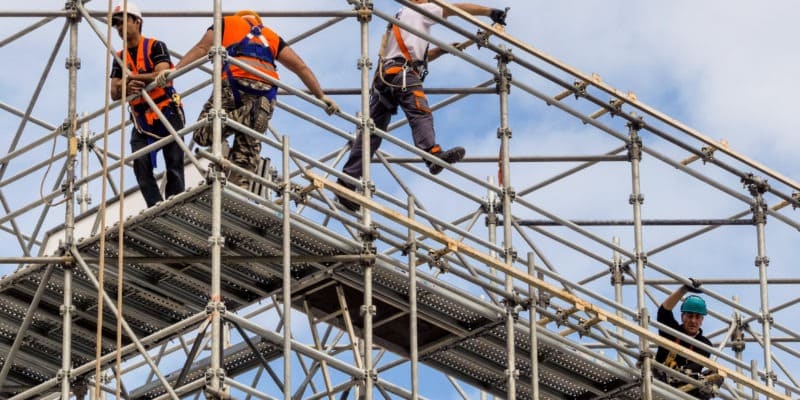Jacob Maslow
July 30, 2023
Prevailing wage is a crucial aspect of the construction industry in New York, as it ensures that workers receive fair compensation on public works projects. In essence, the prevailing wage is the pay contractors and subcontractors in New York must pay their employees when working on public works sites. This rate is higher than the standard minimum wage, based on hourly rates paid by unions to specific workers in a given market.
The New York State Department of Labor issues prevailing wage schedules for general and residential construction projects on a county-by-county basis. General construction rates apply to buildings, heavy and highway, tunnel, and water and sewer work. Contractors and subcontractors must adhere to these wage schedules to comply with state regulations.
Key Takeaways
Prevailing wage is critical in the New York construction industry, ensuring fair pay for workers on public works projects.
The New York State Department of Labor establishes wage schedules for general and residential construction on a county-by-county basis.
Contractors and subcontractors must adhere to these prevailing wage schedules to maintain compliance with state regulations.
Understanding Prevailing Wage
Article 8
In New York State, the prevailing hourly wage and usual benefits and overtime are paid to most workers, laborers, and mechanics within a given area. New York’s prevailing wage law is regulated under Article 8, which focuses on public construction projects. Prevailing wages are usually equivalent to the union wage. They can vary by location, as they are determined based on the average wages earned by professionals in similar roles in the area.
Article 8 of the New York State Labor Law ensures that contractors and subcontractors on public works projects pay their employees the appropriate prevailing wage, as established by the Department of Labor (DOL). These requirements apply to all parties involved in a public work contract, regardless of whether they have a direct contractual relationship with the public entity.
Public Work
Public work refers to any construction, maintenance, or improvement project funded and executed by a public entity, such as federal, state, or local government. These projects typically include building and renovating schools, hospitals, transportation infrastructure, and other public facilities. Regarding prevailing wages, contractors and subcontractors must know the specific rates applicable to their work locality and trade.
The New York State Department of Labor issues prevailing wage schedules for “General Construction Projects” and “Residential Construction Projects” on a county-by-county basis. General construction rates apply to buildings, heavy and highway construction, tunnels, water, and sewer. Employers with government contracts or foreign workers must pay their employees the prevailing wages to comply with the law and ensure fair compensation for their labor.
Understanding prevailing wage laws in New York, specifically under Article 8 and public work projects, is essential for contractors, subcontractors, and employees. Compliance with these laws protects workers’ rights and helps maintain a fair and competitive labor market.


